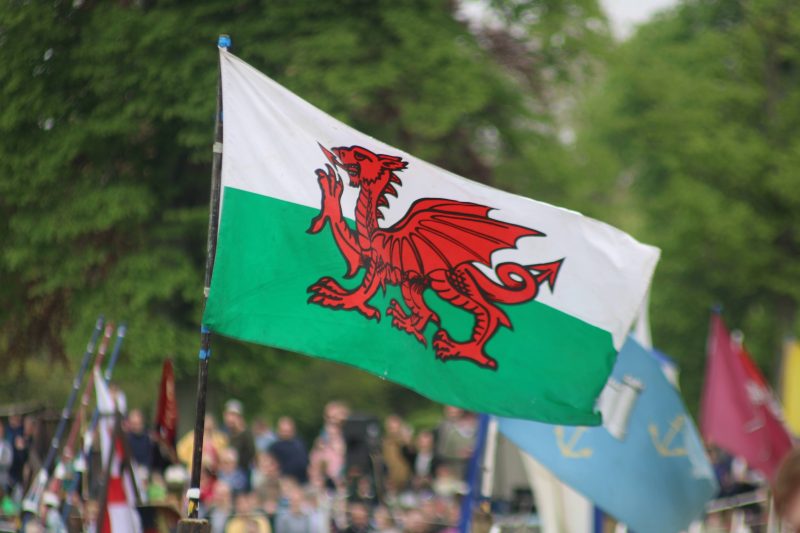 Giada Laganá traces the history of civil society organisations in Northern Ireland and explains why their work in tackling youth unemployment is being put at risk both by the pandemic and Brexit. She writes that, other than funding, what must also be maintained is the promotion of values necessary for such organisations to continue developing future connections, training, education and solidarity.
Giada Laganá traces the history of civil society organisations in Northern Ireland and explains why their work in tackling youth unemployment is being put at risk both by the pandemic and Brexit. She writes that, other than funding, what must also be maintained is the promotion of values necessary for such organisations to continue developing future connections, training, education and solidarity.
It has long been said that, during the period of violent unrest and beyond, Civil Society Organisations (CSOs) have been the glue holding Northern Ireland together. CSOs have had a significant impact in tackling issues from the bottom up and in shaping public, cross departmental youth unemployment policies and politics. Over the years, organisations focused on youth unemployment specifically have formed a much larger proportion of all civil society organisations in Northern Ireland (47.9%) than they have in Scotland (21.1%), Wales (15%) and England (5.5%). Why does Northern Ireland present such an anomaly in the youth work wider UK context?
To investigate the genesis of CSOs’ role in the field of youth unemployment, it is necessary to first historicise multidimensional context of conflict and division. Since its establishment in 1920, the Parliament at Stormont has behaved like an independent legislature. Inequalities appeared as the result of institutionalised routines, which were only strengthened when British troops were sent to Northern Ireland in 1969 to take over some of the roles which the police could no longer perform. In 1970, when British troops started to operate under the Special Powers Act, they were immediately identified by the nationalist community as relating to Stormont rule, and this eventually led to rioting and civil strife. Subsequently, the abolition of the Parliament in 1972 and the imposition of direct rule from Westminster ended half a century during which the unionists had operated a virtual monopoly of power.
Northern Ireland’s ambiguous constitutional status – and the inequalities entrenched within it – made it impossible for the nationalist community to identify with the state’s institutions. Catholics resented the sacrifice of their identity to political expediency by both Ulster Unionism and Irish separatism; driven by fears of absorption, they started a long tradition of autonomous local community work. The first republican networks and CSOs were born during the conflict, as these were the only groups perceived as trustworthy and able to take care of the community’s most basic needs. Employment and education of young people were at the core of this work. Unionist CSOs developed later, as they were more aligned to the state or to one of the many established churches (the Church of Ireland, the Presbyterian Church).
The work of CSOs continued to evolve after the 1998 Good Friday Agreement (GFA). The GFA constitutional template, with its three interlocking strands, is complex, elaborate, and purposefully ambiguous because it is the outcome of negotiations between a variety of political actors with very different preferences. The Agreement accorded considerable salience to the role of CSOs, pledging continuing support and enhanced financial assistance for the work of reconciliation, especially among young people facing particular development difficulties. Moreover, the GFA recognises the importance of employment for the reintegration of former political prisoners within Northern Irish society. Such provisions have formally institutionalised processes for structuring politics and systems of public policymaking from the bottom up, consciously fragmenting political and institutional power by creating interdependent institutional layers. The expectation was that if these new institutions and ways of pushing for social change became embedded, all of the various political actors, regardless of their preferences, would become locked into a cooperative set of institutions in which the costs of exit would be very high.
The problem that the GFA negotiators could not foresee was the intermittent existence of the executive power-sharing institutions. The desired new cooperative framework should have been filtered by the new establishment, but political and symbolic divisions are still compromising the work and (too often) the existence of the Northern Ireland executive. Such circumstantial condition has de facto increased civil-society reliance on the voluntary sector. CSOs, in the absence of an executive, are the main representatives of people’s – and especially young people’s – needs from the bottom up.
Finally, we need to account for the impact of EU peacebuilding. This has generally been overlooked by existing analysis, with some notable exceptions. Through economic instruments – such as the INTERREG the PEACE programmes – the EU was able to fund, create, and develop new ways of working together. These programmes were an especially unique peacebuilding instrument aimed at empowering CSOs to take a more active part in the public policymaking process. They created new alliances and new partnerships between the statutory, private, and voluntary/community sectors. New partnerships were also facilitated between communities and groups at the project level, undertaking cultural, education, and training activities. Recently, the programme PEACE IV (2014-2020) was specifically aimed at young people. Employment has never been mainstreamed in the PEACE programmes, but it has always been considered as a by-product of a peaceful society.
If the practical impacts of the PEACE package have always been questioned, it is undeniable how the experience of working in the EU framework has left a positive imprint on CSOs’ work. The EU approach has focused on the critical role of the British and Irish governments, thus anchoring the existence of grassroots networks to national agendas. This allowed CSOs to engage directly with the EU, learning from the past, consolidating peace, ‘normalising’ the needs of the region and lobbying for positive societal change. The unusual openness of the UK government to this vertical communication channel allowed the EU to steer direct engagements between the Commission, the Northern Ireland administration, and CSOs. The latter gained significant autonomy especially in representing the local level in the EU arena, battling for funds conscious of having a deep understanding of the social context in which they were acting. This EU experience inaugurated a new tradition of autonomous grassroots work that benefitted all public sectors in Northern Ireland, including youth unemployment work.
Shedding light and historicising the social forces that played a role in shaping today’s context of Northern Ireland youth work helps us to reflect on ways in which policymakers and practitioners might seek to positively develop and enhance the activities of this sector in a post-COVID and post-Brexit context. Northern Ireland’s reliance on CSOs reflects very much the fragmented nature of the history and society as a whole, the volatile status of executive politics, and the EU peacebuilding strategy. If Northern Ireland seems to have maintained meaningful funding opportunities for young people and youth organisations (also thanks to the Republic of Ireland’s engagement), much work will still need to be done to help engender an environment that allows space for the individual to become more involved in non-partisan collective action. There is no clear, unifying agenda for the future that underlines what CSOs can hope to achieve, but it is incumbent to promote values and principles that would underpin future connections, training, education and solidarity comparable to the opportunities available to all young people in the EU.
____________________
 Giada Laganá is a Research Assistant at the Wales Institute of Social and Economic Research and Data , School of Social Sciences, Cardiff University. She currently works with Dr Sioned Pearce at the project ‘Youth unemployment and civil society under devolution: a comparative analysis of sub-state welfare regimes’. She is the author of The European Union and the Northern Ireland Peace Process (Palgrave McMillan, 2021).
Giada Laganá is a Research Assistant at the Wales Institute of Social and Economic Research and Data , School of Social Sciences, Cardiff University. She currently works with Dr Sioned Pearce at the project ‘Youth unemployment and civil society under devolution: a comparative analysis of sub-state welfare regimes’. She is the author of The European Union and the Northern Ireland Peace Process (Palgrave McMillan, 2021).
Photo by Bewakoof.com Official on Unsplash.








I am glad to see this emphasis on Civil Society Organisations (CSOs) as they have, indeed , been the glue that held Northern Ireland together. The ongoing problems and divisions in Norther Ireland will only be solved at grass roots level, if at all.
Way back, when the Peace Programme was starting out, the Programme was held together at grass roots level after the shock of the breaking of the ceasefire in 1996 (Canary Wharf explosion). That programme was implemented on the ground very much through CSOs, a relatively new development in Norther Ireland at the time.
CSOs emphasing cross community projects contributing to peace and reconciliation will be vital in stabilising the Province in advance of any Border Poll, if such were to come about. Ongoing divisions will scuttle any unified approach in Norther Ireland and make the Republic more reluctant to join up with Northern Ireland. And a continually divided Northern Ireland will magnify the disadvantages of Brexit for both North and South. These divisions have obscured the opportunities presented by Northern Ireland’s current ambiguous economic status in the EU Single Market and the UK Customs Area.
I look forward to seeing some common sense coming through the CSOs at more local level.